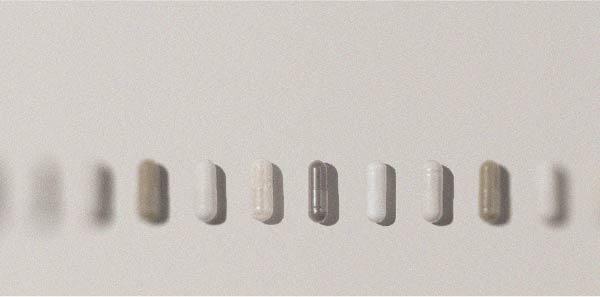The Cretan or Mediterranean diet: principles and benefits
Research has shown the Mediterranean diet to be particularly good for our health. Discover the simple principles and multiple benefits of this traditional and healthy way of eating.

The Mediterranean diet, a truly healthy way of eating
The Cretan or Mediterranean diet, has been the subject of scientific research for a number of years. Back in the Fifties, an American scientist called Ancel Keys documented how the good health enjoyed by Mediterranean populations was linked to their diet. It seems that people in these countries, especially Greece, enjoy better health – and consequently a longer life expectancy - as a result of their lifestyle.
Central to this lifestyle is a particularly well-balanced diet with an abundance of local produce. Such is the quality, variety and healthy nature of the Mediterranean diet that it was even included in UNESCO’s Intangible Cultural Heritage of Humanity list.
The Mediterranean diet in practice: an abundance of fibre, antioxidants, vitamins …
The Mediterranean diet is based on principles that are luckily quite easy to follow. Above all, it’s about eating mouth-watering dishes that contain a wide range of healthy foods, high in fibre, antioxidants, essential fatty acids and vitamins.
Foods to focus on
- fruits and vegetables: at every meal, raw or lightly-cooked (steamed, for example) ;
- garlic, onion, herbs, spices: at every meal;
- olive and rapeseed oil: at every meal;
- whole grains: every day;
- nuts (hazelnuts, almonds, pistachios…): every day;
- seeds (flax, pumpkin, sunflower, pine nuts…): every day;
- sheep’s milk yogurt and cheese: up to twice a day;
- oily and white fish, shellfish and seafood: up to three times a week;
- pulses (chickpeas, beans, lentils …): two to three times a week.
The traditional Mediterranean diet also includes a daily glass of red wine. Remember though that excessive alcohol intake is damaging to health – it should always be consumed in moderation.
Foods to avoid
- red meat;
- sugary foods and drinks;
- cow’s milk products;
- ready meals;
- strong alcohol, beer, white wine ...
Some useful supplements to complement your Mediterranean diet
Are you looking for dietary supplements to boost the effects of your eating plan?
In terms of fibre, choose a prebiotic composed of soluble fibre, such as Organic Acacia. You can also increase your antioxidant intake with a formulation high in catechins, polyphenols and glutathione (for example, AntiOxidant Synergy).
For essential fatty acids, we’d recommend stocking up on fish oil omega-3s with the formulation Super Omega 3. And as for vitamins, there’s no better solution than a course of multivitamins (for example, Daily 3®).
The benefits of the Mediterranean diet: good for the heart, nervous system, and general health ...
A clear role in cardiovascular health
This is the most widely-documented benefit, and with good cause! High in the unsaturated fatty acids omega 3, 6 and 9, , this diet helps control the body’s lipid levels, balancing ‘good’ and ‘bad’ cholesterol, and reducing triglycerides… (1)
One study showed it could reduce the risk of developing type 2 diabetes by 35% (2). It may also have a positive effect on blood pressure (3).
That the Mediterranean diet plays a role in protecting the cardiovascular system is unquestionable: studies show it clearly reduces the risk of developing cardiovascular disease (4). These benefits are also useful for losing weight naturally.
How this diet helps fight aging
In addition to its heart-health benefits, the Mediterranean diet may also reduce the unwelcome effects of aging, with research highlighting in particular the protective role it plays in the nervous system. The targets here are neurodegenerative diseases such as Alzheimer’s and Parkinson’s.
Positive effects on age-related cognitive impairment are also associated with the Mediterranean diet (5). A decline in mental faculties can be incapacitating and is the first step on the road to more serious neurological conditions.
And what are the links between this diet and cancer prevention?
Many scientists believe the Mediterranean diet to be a valuable cancer prevention tool, particularly for colorectal, prostate, oral and throat cancer.
It seems that following this diet carefully over the long term reduces the risk of cancer and associated mortality (6). The fibre, antioxidants and essential fatty acids abundant in typical Mediterranean foods are key among the constituents responsible for these benefits.
A potential ally in fighting depression
Several components of the Mediterranean diet (particularly its antioxidants) may also exert positive effects on mental health. Some studies suggest that it not only plays a preventive role in depression (7) but may relieve its symptoms too (8).
Does it play a positive role in fertility?
The Mediterranean diet also appears to promote good reproductive health in both men and women. Superior sperm quality (9) and improvements in the menstrual cycle have been observed in those following such a diet (10).
Similar observations have been made in the area of medically-assisted reproduction: it seems the Mediterranean diet may increase the chances of IVF success (11).
Who in particular should adopt the Mediterranean or Cretan way of eating?
The simple answer is everyone! With a diet as healthy and balanced as this, any risk of deficiency is negligible.
What’s more, this isn’t really a ‘diet’ as such, because it’s easy to follow and the relevant foods are readily available. There are few forbidden foods, and it can be followed over the long-term, even by ‘foodies’.
Along with consuming the omega-3s, antioxidants and vitamins offered by this diet, it’s important to remember to take regular exercise too. And at the same time, why not benefit from the convivial nature of Mediterranean eating by making more of your meals communal, relaxed affairs with family and friends, and reducing your stress levels as much as possible … it’s a whole philosophy for life that’s excellent for health!
Note: If you want to enjoy all the benefits of the Mediterranean, a sun-soaked region if ever there was one, then focus more on life in the great outdoors and the benefits of natural light. As extra ‘insurance’ against deficiency, you could also supplement with vitamin D, the famous ‘sunshine vitamin’ (try, for example, Vitamin D3 5000 IU).
References
- Willett, Walter C. 2006. “The Mediterranean Diet: Science and Practice.” Public Health Nutrition 9 (1a): 105–10.
- Martínez-González MA, de la Fuente-Arrillaga C, Nunez-Cordoba JM, et al. Adherence to Mediterranean diet and risk of developing diabetes: prospective cohort study. BMJ. 2008;336(7657):1348-1351.
- Christina-Maria Kastorini, Haralampos J. Milionis, Katherine Esposito, Dario Giugliano, John A. Goudevenos, Demosthenes B. Panagiotakos. The Effect of Mediterranean Diet on Metabolic Syndrome and its Components J Am Coll Cardiol. 2011 Mar, 57 (11) 1299-1313.
- Martínez-González MA, García-López M, Bes-Rastrollo M, et al. Mediterranean diet and the incidence of cardiovascular disease: a Spanish cohort. Nutr Metab Cardiovasc Dis. 2011;21(4):237-244.
- Romagnolo DF, Selmin OI. Mediterranean Diet and Prevention of Chronic Diseases. Nutr Today. 2017;52(5):208-222.
- Schwingshackl L, Hoffmann G. Adherence to Mediterranean diet and risk of cancer: a systematic review and meta-analysis of observational studies. Int J Cancer. 2014;135(8):1884-1897.
- Lassale, C., Batty, G.D., Baghdadli, A. et al. Healthy dietary indices and risk of depressive outcomes: a systematic review and meta-analysis of observational studies. Mol Psychiatry 24, 965–986 (2019).
- Francis HM, Stevenson RJ, Chambers JR, Gupta D, Newey B, Lim CK (2019) A brief diet intervention can reduce symptoms of depression in young adults – A randomised controlled trial. PLoS ONE 14(10).
- Salas-Huetos A, Bulló M, Salas-Salvadó J. Dietary patterns, foods and nutrients in male fertility parameters and fecundability: a systematic review of observational studies. Hum Reprod Update. 2017;23(4):371-389.
- Fontana R, Della Torre S. The Deep Correlation between Energy Metabolism and Reproduction: A View on the Effects of Nutrition for Women Fertility. Nutrients. 2016;8(2):87. Published 2016 Feb 11.
- Dimitrios Karayiannis, Meropi D Kontogianni, Christina Mendorou, Minas Mastrominas, Nikos Yiannakouris, Adherence to the Mediterranean diet and IVF success rate among non-obese women attempting fertility, Human Reproduction, Volume 33, Issue 3, March 2018, Pages 494–502.
Keywords
13 Hours
great products and prices
great products and prices
Marie
6 Days
Easy to navigate site
Easy to navigate site, had what I was searching for, good price. easy order-check out
James Tucker
12 Days
My skin is clearing up nicely!
Pretty good for my skin so far.
Christian
14 Days
The new packaging is excellent
The new packaging is excellent - finally! No more squashed boxes and torn envelopes.
GORAN
15 Days
Great Product
Great Product
Larry Garrett
19 Days
Quick shipping
Quick shipping; good price. No issues!
Mary McCarty
21 Days
Thr product is very good and is helping…
Thr product is very good and is helping me on my health. Then is always on time
LUGO Luz
23 Days
Buying was fine
Buying was fine. I had problems with the website not recognizing my login info, and had to call to get it fixed. Other than that, everything was good.
David S. Clark
24 Days
Your super maca and super ginseng are…phenomenal
Your super maca and super ginseng are phenomenal supplements that compliment each other when taking them together. Fantastic feeling of well-being and lots of mid day energy without the crash.
Keith Mason
26 Days
I have had amazing results with every…
I have had amazing results with every supplement I've purchased. I am extremely satisfied with this company
kirstin Torres
26 Days
Fine products
Fine products . They are on the leading edge of online supplements. The only issue -so far-is they sometime run out of subscription items.
Jason Argos
29 Days
The ordering process is very user…
The ordering process is very user friendly and the products always come in a timely manner.
CARTER Rhonda
30 Days
The price for Dr
The price for Dr. Pero's AC-11 is reasonable and in line with his views. (my former colleague). Keep it pure.
CAMPBELL Clayton
33 Days
Right on every time.
Right on every time.
Arthur Nicholas
36 Days
They are cheaper than everyone else and…
They are cheaper than everyone else and the shipping was fast. Great company.
Patricia Adams




